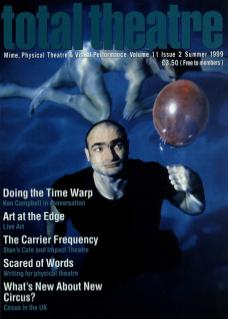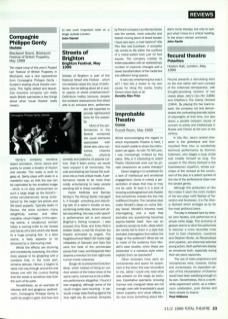Whilst acknowledging the regard in which Improbable Theatre is held, I find myself unable to share the enthusiasm yet again. As with 70 Hill Lane, I was increasingly irritated by this piece. Why is it interesting to watch Phelim McDermott work out his private obsessions as public therapy?
Clever staging is no substitute for a lack of intellectual and emotional engagement. Coma is merely a presentation of ideas that may or may not be valid. At best it is a kind of knowing autobiographical anti-theatre that sometimes crosses the line into indifferent theatre. The narrative style make Mindell's ideas on coma therapy banal. Mindell's theories need interrogating, and a style that excludes any questioning becomes psycho-babble itself. How can an audience accept as truth, ideas which are merely fed to them in a style that excludes interrogation from either the stage or the audience? What are we to make of the evidence from Mindell's case studies, when these are presented in a narrative style which exploits them as spectacle?
Other reviewers have seen an inclusiveness and space for scepticism in the show, this was not evident to me, rather I could only read what was present on the stage as exclusive. Exploitative spectacle, knowing humour and unargued ideas are not enough, even with Improbable's usual clever puppetry and visual effects. I do now know something about Mindell's coma therapy, but only to subject what I know to a critical reading. To the show I remain unmoved.

